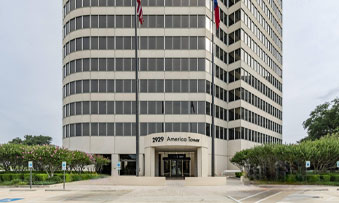Texas Overloaded Truck Accident Lawyer

Texas Overloaded Truck Accident Attorney
Vehicle accidents involving big trucks are among the most devastating, often resulting in severe injuries and catastrophic physical, emotional, and financial tolls. Trucks that are transporting heavy cargo present additional dangers if it is not properly secured and carried. Unfortunately, overloaded trucks, unsecured loads, and improperly loaded cargo can all lead to serious accidents.
If you’ve suffered a personal injury that resulted from an overloaded truck accident, it is vital that you work with a qualified and experienced accident attorney as soon as possible. A skilled attorney with a background in handling overloaded truck accident cases can provide valuable guidance through the complicated legal procedures involved in pursuing a personal injury claim.
Overloaded Truck Accident Representation
The legal team at the Merritt & Merritt Law Firm offers comprehensive knowledge of legal procedures, rules, and regulations pertaining to truck accidents. Our lawyers have successfully fought against negligent truck drivers and truck companies in these cases. We helped clients who were injured in these crashes receive just and fair compensation for their injuries.
Through strong diligence and rigid tenacity, we have fought to protect the rights of those unfairly injured in truck accidents. We aren’t afraid to take even the big truck companies to court to secure a favorable outcome for our clients, earning our firm a statewide reputation for doing what is right for each client rather than taking the quick or easy resolution. Because we exclusively take on accident cases involving big trucks, we have developed a winning strategy for securing damages for any losses resulting from accidents involving overloaded trucks.
What Is an Overloaded Truck?
Truck drivers serve an important role in the economy, transporting goods within the state and across the country. However, commercial drivers in Texas must comply with all state regulations for safe cargo transportation. When these regulations and precautions are not followed, it can lead to dangerous situations, accidents, and potentially severe injuries. Truck accidents can result from the following loading issues:
- Overloaded truck. A truck is overloaded when the cargo bulges over the sides of the truck or is stacked over the top. Additionally, overweight trucks are those that exceed the legal cargo weight limit of 80,000 lbs. Overloaded cargo can affect the vehicle’s ability to slow down.
- Unsecured load. A load is considered unsecured if the cargo is allowed to shift or slide around while on the truck. Cargo that is unsecured can affect the vehicle’s handling and potentially create a road hazard if any of the cargo falls off the truck.
- Improperly loaded cargo. Cargo is improperly loaded if an uneven distribution leads to an imbalance. Incorrectly distributed loads can affect vehicle handling, potentially causing damage to the truck itself, its tires, or its axles. It can also lead to steering issues or problems with traction. Additionally, improperly loaded cargo can cause a truck to tip over.
Several federal administrations are responsible for instituting and executing regulatory policies aimed at ensuring the safe transport of goods by commercial vehicles, such as semi-trucks, flatbed trailers, and other big trucks. For instance, the Federal Motor Carrier Safety Administration (FMCSA) sets the weight regulations for various types of trucks and cargo. Commercial Vehicle Enforcement (CVE) requires truck drivers to ensure that they are legally transporting all loads according to several specific requirements as well.
All commercial trucks are required to stop at a weigh station when entering the state to ensure that they are under the maximum permissible vehicle weight. Additionally, commercial vehicles transporting loose material must secure their loads with firm coverings over the front and back of the cargo unless it is otherwise completely enclosed in the load-carrying compartment. Loose material includes:
- Dirt
- Sand
- Gravel
- Wood chips
- Refuse, garbage, or trash
- Any material that could be blown by the wind
- Any material that could spill because of movement
The FMCSA and CVE set strict regulations over cargo loads to prevent any serious danger that could be posed by failing to properly follow those guidelines. Unfortunately, accidents still occur, and the first step in determining liability usually involves discovering which regulations were not followed.
How Can You Determine Negligence in an Overloaded Truck Accident?
As with any vehicle accident when negligence is determined to have been the cause of the accident, the victim experiencing the personal injury has a right to pursue a claim to recover damages. There are two ways to establish negligence.
The first is to prove that the at-fault party owed a duty of care and breached that duty, resulting in the claimant suffering a real loss or injury as a direct result of that breach of care. If these elements can be sufficiently demonstrated and proven, the court can be satisfied to deem the other party at fault on account of negligence and award compensation to the claimant for damages.
The second way is to establish “negligence per se.” In this legal doctrine, negligence is established by default if the acting party committed a violation, eliminating the need to prove any other element aside from demonstrating that the act directly resulted in a real injury or loss. In the case of an overloaded truck accident, negligence is legally assumed if any commercial vehicle or load regulations were violated.
Some common negligent behaviors for truck drivers include:
- Driving while distracted
- Driving while drowsy
- Driving under the influence
- Driving recklessly
- Driving erroneously
- Failing to properly inspect or maintain the vehicle
It may also include actions from other parties, including:
- Unsafe training practices
- Unsafe schedules
- Unsafe cargo loading and securing
Who Is Responsible If a Truck Is Overloaded?
Several parties can potentially be held liable for an accident involving an overloaded truck, depending on the circumstances. This may include any combination of the following:
- Truck driver. Ultimately, it is the legal responsibility of the driver to ensure that the truck is complying with all rules and regulations. Truck drivers are expected to conduct thorough inspections of their vehicles before traveling with cargo, making sure that weight is distributed evenly, is under the maximum, and that all materials are properly secured.
- Truck company. While the driver has the final responsibility to ensure safe and legal driving, a trucking company could also be held liable for failing to properly train drivers on how to secure cargo. Additionally, the legal doctrine of “respondeat superior” can hold an employer responsible for the wrongful actions of its employee that were committed within the scope of their employment.
- Truck manufacturer. If the driver has complied with all regulations, but a load becomes unsecured due to faulty equipment or a defective product, the manufacturer could instead be held liable for the injuries resulting from any accident.
- Truck loader. In some cases, the party loading the truck works for a different company than those that drive or own the truck. If it was the responsibility of someone else to load the cargo, that party could be held liable in part or in full for unsecured, loose, or improperly loaded cargo.
No matter who is believed to be at fault, it is important that you work with a skilled attorney who can effectively establish the negligence of the other party in your case.
Can You Sue a Trucking Company in Texas?
If you’ve been injured in an overloaded truck wreck, you have the right to pursue a claim against the trucking company or other at-fault party in Texas. Depending on the extent of your injuries, you could recover damages for the following losses:
- Medical expenses, including hospitalization, emergency medical care services, procedures, follow-up care, medication, occupational and physical therapy, and other forms of treatment.
- Lost wages, including any income missed as a result of being out of work while you recover and loss of earning capacity if a physical injury is severe.
- Property damage, including vehicle repair and replacement costs.
- Pain and suffering for all injuries on account of having or dealing with the behavior in question.
The award amount for which you bring a claim against the trucking company will be commensurate with:
- The losses you sustained
- The percentage of fault of the opposing driver
- The value of any damaged property
- The severity of your injuries
What Is the Average Settlement for an 18-Wheeler Accident in Texas?
Every personal injury and accident claims case is unique, with so many varying factors between them that it is not possible to correctly define an average settlement amount. However, it is generally true that 18-wheeler accidents end in settlements that range in the tens of thousands of dollars, with the median somewhere around $75,000. This is largely due to the extensive damage these accidents can cause, both to property and the individual. For this reason, it is imperative that you partner with a qualified and skilled accident attorney who can help maximize your settlement amount, fighting for a fair and just compensation award.
Talk to an Attorney About Your Oversized Truck Accident Today
If you’ve been injured in or suffered loss from an accident involving an oversized cargo load, you may be entitled to pursue restorative compensation. The lawyers at the Merritt & Merritt Law Firm are ready to put their decades of experience in big truck accidents to work in your case. Our team can fight diligently on your behalf to secure the most favorable outcome possible. Contact our office today to discuss the details of your case.






